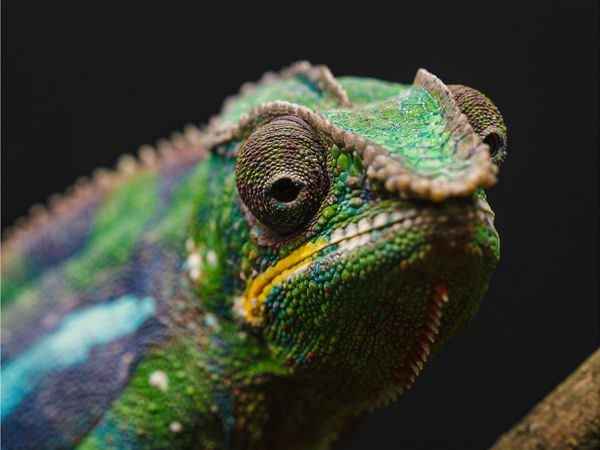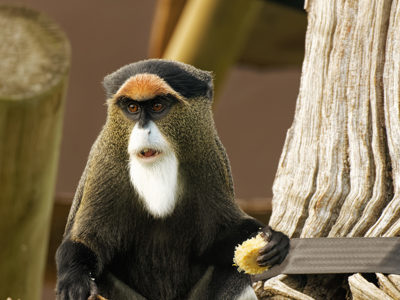
De Brazza’s monkey
De Brazza’s monkeys are Old World monkeys, a term describing monkeys from Africa and Asia. They are part of the guenon group of monkeys. They have an orange band above the eyes and a white beard extending from their nose. There is clear sexual dimorphism with the males considerably larger than the females, at around 3kg more. Males also have bright blue scrotums.
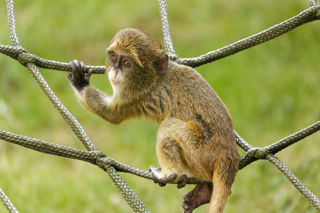
Most De Brazza’s monkeys live in groups of 8-10 individuals with a dominant male (who will be the only breeding male), adult females and their offspring. However, there are groups in Gabon which seem to live in monogamous families with a male, a female and their offspring. This is the only guenon species where close male-female bonds have been observed.
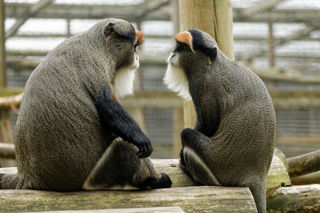
Female De Brazza’s monkeys usually give birth to a single infant, though twins are born occasionally. They become sexually mature at five to six years old. Females stay with their birth group whereas males will leave once they are mature. When a group is threatened by predators the females and young will hide in the undergrowth whilst the male makes loud calls from a tree to distract the predator away from the young.
The diet of De Brazza’s monkeys is mainly fruit and seeds, but they will also eat leaves, mushrooms and insects.
Habitat loss, through the conversion of forest to farmland, and hunting is the main threat facing the De Brazza’s monkeys. They are hunted for meat, particularly in the western parts of their range and in East Africa they are also killed as an agricultural pest.
Key Facts:
Conservation Status: Least Concern
Distribution: Central Africa
Habitat: Swamp Forest, Tropical Forest
Diet: Flowers, Fruit, Insects, Leaves
Height: 40 – 65cm
Weight: 4 – 7kg
Gestation: 168 – 187 days
No. of young: 1 – 2
Life Span: 30 years
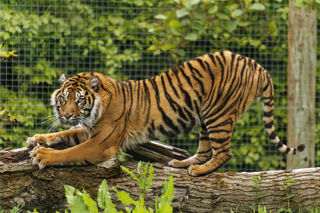
SUPPORT OUR ANIMALS
If you're looking for an alternative way to donate to Twycross Zoo, you can help support our animals and our zoo keepers by purchasing something from our Amazon Wishlist!
Updated regularly by our zoo keepers, the items on the list help to provide enrichment for our animals and keep their habitats well maintained.
Every donation helps us as a conservation charity.
